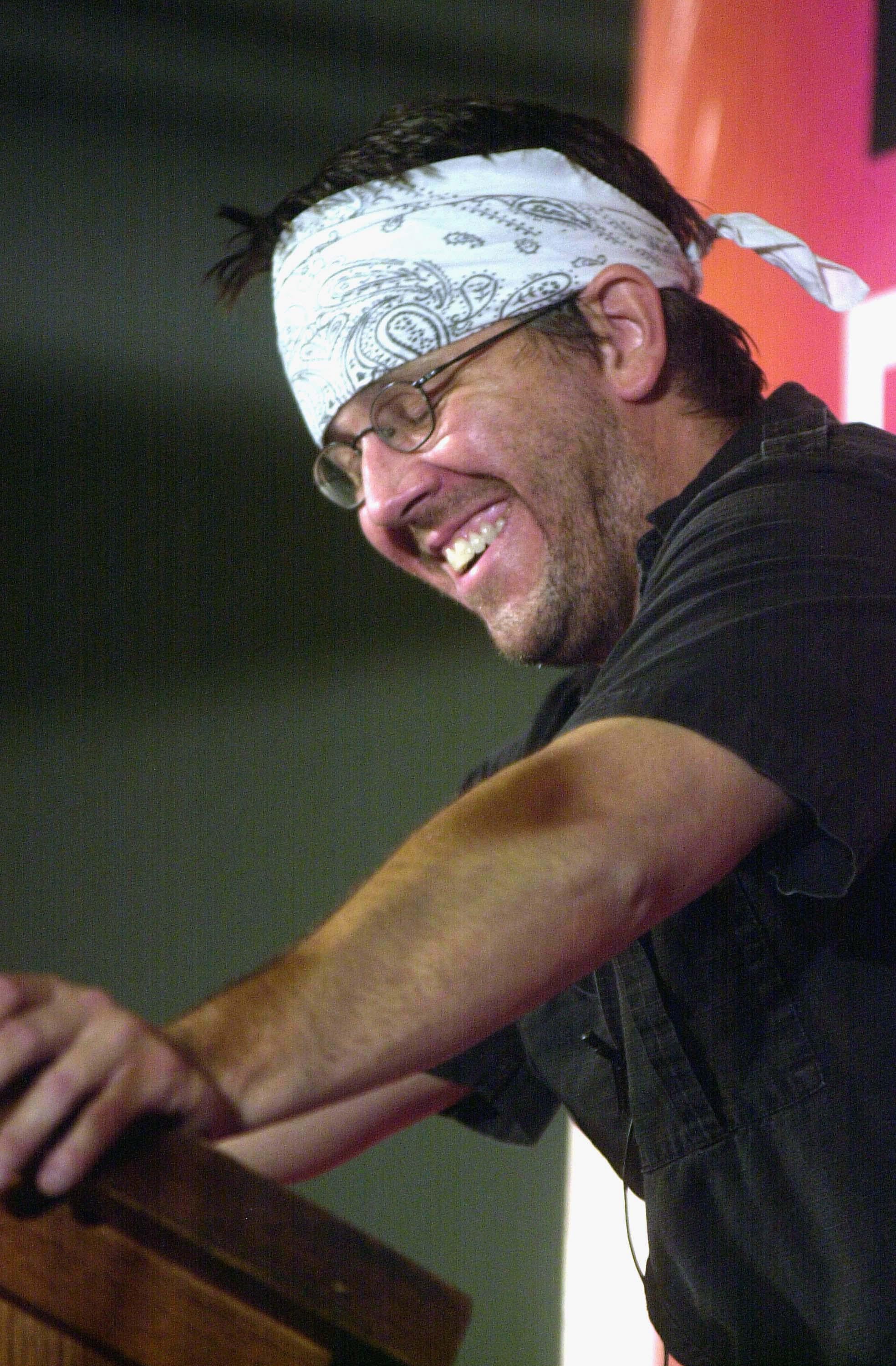The Christian Science Monitor ran a peculiar list of “David Foster Wallace’s 10 Favorite Books” recently, a ranking that’s since been picked up in places like Flavorwire. (The list was originally published without comment from the author in 2007, in the collection The Top Ten: Writers Pick Their Favorite Books.) The list isn’t what you’d expect from Wallace, or indeed any literary luminary, as DFW passes over names like Shakespeare and Pynchon and Joyce for Stephen King, Robert Harris, and Tom Clancy—and a couple of books (the Ed McBain 87th Precinct mystery and the natural horror title Alligator) that seem to be out print:
The Screwtape Letters by C.S. Lewis
The Stand by Stephen King
Red Dragon by Thomas Harris
The Thin Red Line by James Jones
Fear of Flying by Erica Jong
The Silence of the Lambs by Thomas Harris
Stranger in a Strange Land by Robert A. Heinlein
Fuzz by Ed McBain
Alligator by Shelley Katz
The Sum of All Fears by Tom Clancy
What should we make of this? I don’t think Wallace was screwing with us. While his own fiction can be dense and difficult, he was a vocal advocate for straightforwardness—and just plain being nice; he wasn’t making light of these novels, nor, I think, simply being enigmatic, like Bob Dylan making a Christmas album.
At the same time, I’m not sure that I buy that these were Wallace’s true ten favorite books, though he may have admired each of them a great deal. Wallace had a famously complicated relationship with popular entertainment. He loved watching TV, and thought that literature might have to make itself more amusing in order to compete. But his masterwork, Infinite Jest, concerns a film so entertaining that viewers forget everything else, stop eating and drinking, and die.
Wallace was also known to name other books beyond these as his favorites. When Salon writer Laura Miller asked Wallace for the books that he most connected with, Wallace responded:
OK. Historically the stuff that’s sort of rung my cherries: Socrates’ funeral oration, the poetry of John Donne, the poetry of Richard Crashaw, every once in a while Shakespeare, although not all that often, Keats’ shorter stuff, Schopenhauer, Descartes’ Meditations on First Philosophy and Discourse on Method, Kant’s Prolegomena to Any Future Metaphysic, although the translations are all terrible, William James’ Varieties of Religious Experience, Wittgenstein’s Tractatus, Joyce’s Portrait of the Artist as a Young Man, Hemingway—particularly the ital stuff in In Our Time, where you just go oomph!, Flannery O’Connor, Cormac McCarthy, Don DeLillo, A.S. Byatt, Cynthia Ozick—the stories, especially one called “Levitations,” about 25 percent of the time Pynchon. Donald Barthelme, especially a story called “The Balloon,” which is the first story I ever read that made me want to be a writer, Tobias Wolff, Raymond Carver’s best stuff — the really famous stuff. Steinbeck when he’s not beating his drum, 35 percent of Stephen Crane, Moby-Dick, The Great Gatsby.
And, my God, there’s poetry. Probably Phillip Larkin more than anyone else, Louise Glück, Auden.
Not a single mention of Thomas Harris here, despite his two spots in Wallace’s published top ten list. And the Salon interview more closely matches the books Wallace was most vocal about elsewhere: In Consider The Lobster, Wallace wrote thousands of admiring words about Updike, Kafka, and Dostoevsky, and the heavily notated copies from Wallace’s collection at the University of Texas at Austin include titles by Don DeLillo, Cynthia Ozick, John Updike, and Cormac McCarthy.
Of course, that same library also includes Wallace’s marginalia in a surprising number of self-help books, along with note-filled margins in teaching copies of Stephen King’s Carrie and C.S. Lewis’s The Lion, The Witch and the Wardrobe and a copy of Thomas Harris’s The Silence Of Lambs—so it wouldn’t be fair to underestimate their influence. Some interviews provide further clues as to why Wallace was so taken with these less canonical works. In The New Yorker, D.T. Max noted that Wallace “admired the novels of Tom Clancy for their ability to pack in facts,” and one road trip soon after Wallace finished his M.F.A. was passed with his mother “reading aloud a Dean Koontz novel.” In another New Yorker essay, Jonathan Franzen speculated at length about Wallace’s relationship with Screwtape.
While Wallace was not quite as vocal on the subject as some of his contemporaries (such as Jonathan Lethem and Michael Chabon), he’s far from alone in his admiration for genre fiction. Some observers have even suggested that his literary generation is united by the desire to become more accessible, and the literary establishment seems to be responding: This past year, Wallace’s last novel was beaten to the NYT’s “10 Best Books of 2011” list by one of the writers he celebrated on his own top ten list: Stephen King, making his first appearance on that list.
